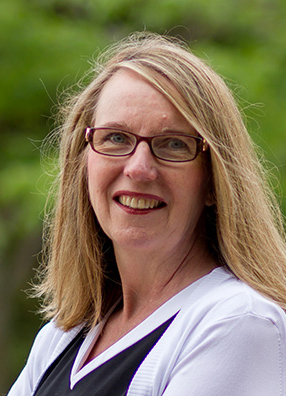
With COVID-19 highlighting the need for skilled personal support workers (PSWs) for long-term care facilities, a new continuing education course being launched this year by the University of Guelph is intended to enable Ontario PSWs to upgrade their skills quickly and easily.
The “micro-credential” program to be offered by U of G’s Open Learning and Educational Support (OpenEd) department will address critical workforce shortages and improve quality of long-term care by mitigating employee burnout and improving resiliency and retention, said Michelle Fach, executive director of OpenEd.
The program is intended to help existing personal support workers to work more effectively within an increasingly complex care environment.
“Open Learning and Educational Support at the University of Guelph is committed to designing and developing courses and programs that not only respond to labour market demands but also have real-world impact within our community,” she said.
“This micro-credential program will be developed in collaboration with partners representing both the PSW profession and long-term care sector to ensure the curriculum provides students with the tools they need to be confident and successful in their work.”

OpenEd will develop the program in partnership with St. Joseph’s Health Centre Guelph and the Canadian PSW Network. Funding is being provided under the Ontario Micro-credentials Challenge Fund offered by the Ministry of Colleges and Universities and the Ministry of Labour, Training and Skills Development.
“More than ever, we are seeing how integral the role of personal support workers is to the functioning of our long-term care and health sectors,” said Kitchener-Conestoga MPP Mike Harris. “I’m very glad this funding will help address critical shortages and concerns within the PSW workforce so that individuals feel empowered to do and achieve their best while supporting the families and communities in their care.”
The online program will be accessible to PSWs across Ontario, including those in rural and remote areas.
Five innovative micro-credentials, each 25 hours in duration, will be available for participants to complete at their own pace. The program will cover observation and critical thinking, teamwork and collaboration, communication, flexible thinking and problem solving, and empathy and compassion.
Students completing all five micro-credentials will earn a certificate. A student taking all five in sequence without a break will complete the program in just over six months.
“Like any skilled workforce, our membership of PSWs have long voiced their interest in quality professional development as their role as key members of the health-care team evolves,” said Lynn Steele, founder and CEO of the Canadian PSW Network.
Noting the need for highly trained personal support workers in community, acute and long-term care sectors, she said her organization “has been committed to expanding advanced educational opportunities and partnerships for the PSW community to meet that need. The values and guiding principles in this micro-credential program speak to the vision and commitment that partners like the University of Guelph and St. Joseph’s Health Centre Guelph have made to the profession of PSWs.”
Sandra Ramelli, vice-president, people and strategy, at St. Joseph’s Health Centre Guelph, said, “We are thrilled to work with partners to bring a program that provides an opportunity for practical learning that PSWs can apply immediately in their work and enable them to lead from where they are.
“PSWs are an integral part of the health-care team. They make a meaningful difference in the lives of many, and their compassion, resilience, teamwork and problem-solving capabilities are key in their leadership role in this complex and ever-changing world.”
Fach added, “OpenEd is proud to build an accessible program that provides a learning opportunity to help PSWs grow personally and professionally, enabling them to achieve their personal best, all while advancing exemplary care in our communities.”
Contact:
Michelle Fach
mfach@uoguelph.ca
